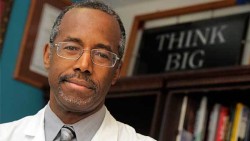 Last year I met a subject matter expert on international HR issues through my local SHRM chapter. A few months later, when I was looking at some HR challenges affecting our expatriate employees, I ran across her again. When I spoke at ALSHRM in May, she was presenting across the hallway on international human resources best practices. In other words, she knows what she’s doing! So I wanted to take a moment to chat with her and learn more about the special niche she fills.
Last year I met a subject matter expert on international HR issues through my local SHRM chapter. A few months later, when I was looking at some HR challenges affecting our expatriate employees, I ran across her again. When I spoke at ALSHRM in May, she was presenting across the hallway on international human resources best practices. In other words, she knows what she’s doing! So I wanted to take a moment to chat with her and learn more about the special niche she fills.
Ben: So, let’s establish your credibility. Tell me about your background.Â
Debbie: I have been working with international employee issues for more than two decades. 13 years in international individual taxation and another 12 years in International Human Resources/Global mobility. I have worked as a Senior Manager with Big 4 Accounting Firms, as well as run corporate Global IHR departments for multinational corporations with more than 2,000 expatriates.
In addition, I have managed more than 60 country combinations, including Asia to Europe, Europe to the Americas and  Americas to Asia/Europe. That means travel is a big part of my work: I’ve visited over 30 countries and even lived in Europe for 6 years.
As far as credentials, I am a CPA as well as GPHR, so I think with both sides of my brain and easily switch the conversation from talent development to accounting/taxation for that same talent. My current role is President and CEO of PZI International Consulting, Inc, where I helps clients effectively and legally expand their talent into global marketplaces.
Ben:Â How did you end up working in an international HR role? Â
Debbie: After managing national accounts for the accounting firms and designing programs/policies for their international HR departments, it was a natural progression to move to the corporate side. Â I wanted to make a bigger impact with one company and felt by going in and designing the program as a best practice Center of Excellence from the ground up, IÂ could impact not only the corporate culture, but also have an impact on individual employees career as well as quality of life.
My first role as a Global Mobility Manager was with an accounting client. Â They wanted to grow the program internally and focus on more than the tax/payroll piece of the IHR program. Â I was brought in to design and run that function.
Ben:Â What was your favorite part of working globally within HR?
Debbie: I like helping people and knowing that I made a difference in someone's life. Â As a CPA, I felt I seldom gave good news to a client, but as a Corporate Head of IHR, I could directly affect an employee's quality of life while they were working abroad for the company. Â Often employees would call me on their last day at the company to thank me for helping them and their families during a difficult situation while they were based abroad for the company.
My main goal was to make the family unit a successful team while they were abroad. Â They were the face of the company, whether in the local markets, the local schools or the foreign workplace. Â If they were challenged, happy to be there and excited about what they were doing, that would reflect well on the corporation as well.
Ben:Â What was the most challenging part of international HR work?
Debbie: Human Resources are often a last minute thought for many business units. Â They are so entangled in getting the business, closing the sale, that the human capital piece of it is seldom thought through. Â I worked diligently at changing the corporate culture around what was required to expand the company into international markets. Â I spent a lot of time training the business units, the other functional areas, rather than waiting for them to come to me, I went to them.
I think being proactive and making people aware of why they need to talk with you lets you be an equal stakeholder in the business development, rather than a stumbling block for the business units.
International HR/Global Mobility is still not a well understood area within organizations. Â It isn't until something goes wrong, someone is in jail, someone is turned away at a border, that many companies begin to look at this function and realize the complexity of it and why they need to have people running it that know all the questions to ask and where to find the answers.
Ben: If you could go back and offer some advice to yourself as you were getting started in this type of role, what would you say?
Debbie: No one knows everything. Â Being a subject matter expert is a good thing, but you have to understand the business and the business needs. Â Otherwise just because you may know the answer, doesn't mean the business wants to hear it. Â Most important part of being a stakeholder in a business is to :: Ask, Listen, Solve. Â In that order. Â Don't assume you know the answer before you ask the question.
Ben:Â Any closing comments, wit or wisdom?
Debbie: Companies should grow their networks, read up on developing trends in the IHR industry. “the authorities haven't caught us yet†is no way to do business internationally.  Investing in your international HR group is as important as investing in your 401k plan or your product development. Every company today should be looking at how they can expand into international markets, the business is definitely out there.  Expanding into these markets means expanding your human assets into those markets.  Make sure you are as diligent with your human assets as you are with your product assets.
Ben: Thanks for your time, Debbie! This has been incredibly insightful.
—————-
I hope you enjoyed this interview exploring some of the ideas around international HR practices with Debbie McGee. You can find her at her website or on LinkedIn.
What are your thoughts about international HR? Is it harder than domestic HR? How did some of these comments influence your opinion?Â

 Last week I had the chance to see Dr. Ben Carson speak at an event. For clarity, this was a faith-based event, not a political one. I have seen the movie
Last week I had the chance to see Dr. Ben Carson speak at an event. For clarity, this was a faith-based event, not a political one. I have seen the movie  Recently I read a blog post about email marketing and delivery, and that line struck me. Stick with me, because I think there’s an intriguing question it brings up.
Recently I read a blog post about email marketing and delivery, and that line struck me. Stick with me, because I think there’s an intriguing question it brings up.